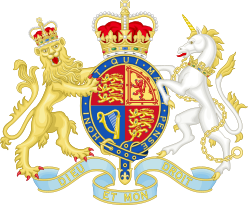 | |
| Presented | 12 March 2008 |
|---|---|
| Country | United Kingdom |
| Parliament | 54th |
| Party | Labour |
| Chancellor | Alistair Darling |
| Total revenue | £575 billion‡ [1] |
| Total expenditures | £618 billion‡ [1] |
| Deficit | £43 billion‡ |
| Website | Budget 2008 |
| ‡Numbers are projections. ‹ 2007 2009› | |
The 2008 United Kingdom Budget, officially known as Budget 2008: Stability and opportunity: building a strong, sustainable future , was formally delivered by Alistair Darling in the House of Commons on 12 March 2008. It was the first Budget to be delivered by Darling, who had been appointed Chancellor of the Exchequer the previous June.
Contents
Among the changes from the previous year were that taxes on alcohol, cigarettes and high-polluting cars would be increased. [2] Child Benefit would be raised to £20 a week from April 2009; winter fuel payments for pensioners would also be increased. [2] All long-term recipients of Incapacity Benefit would have to attend work capacity programmes from April 2010. [2]
The growth of the national economy was expected to slow down to approximately 2% in 2008, down from 3% in the previous year. [2]